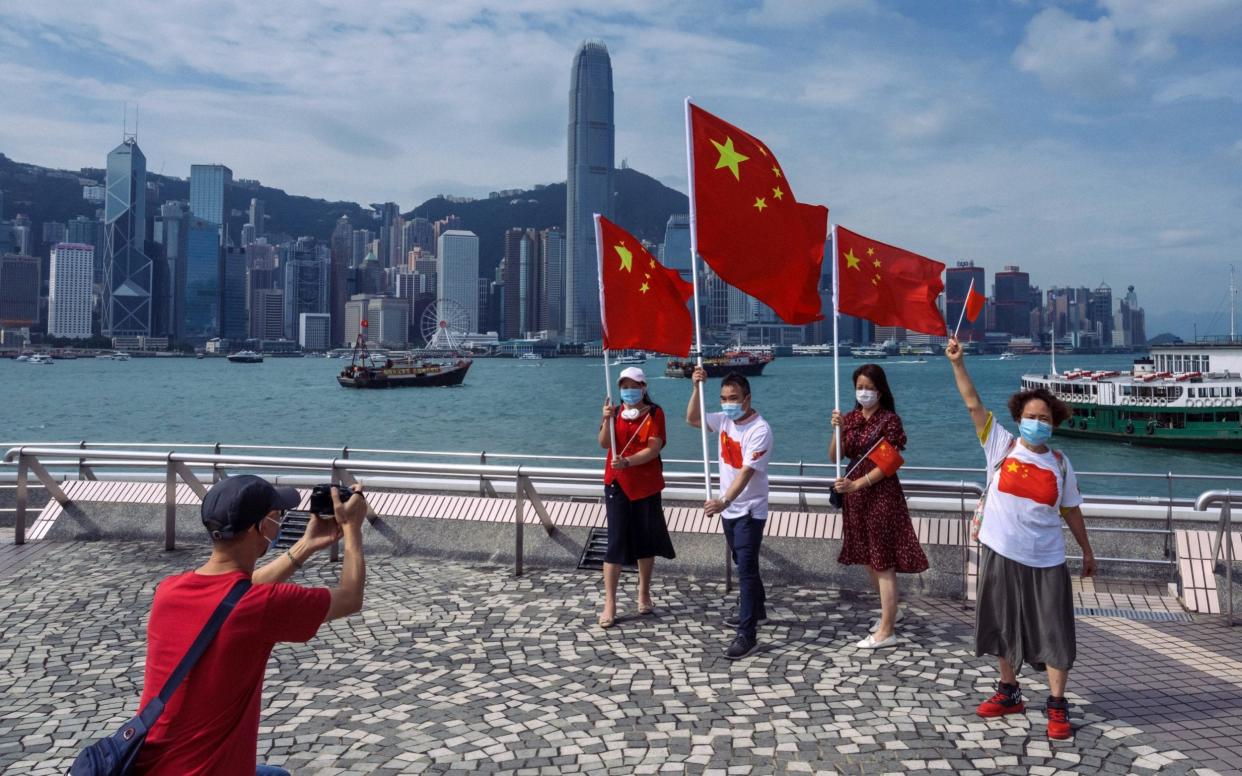US sanctions 24 officials over Beijing's crackdown on Hong Kong, hours before first face-to-face talks with China

The US has announced sanctions against another 24 Chinese officials in response to Beijing’s ongoing clampdown on freedoms in Hong Kong, just hours ahead of the first face-to-face talks between the Biden administration and China.
The sanctions come after China changed Hong Kong’s electoral law by reducing the role of the public to select its leaders and required candidates to be vetted to ensure their loyalty to Beijing.
The use of sanctions “underscores our deep concern” with those changes that Beijing has imposed on Hong Kong, said Anthony Blinken, US secretary of state.
“This action further undermines the high degree of autonomy promised to people in Hong Kong and denies Hong Kongers a voice in their own governance, a move that the United Kingdom has declared to be a breach of the Sino-British Joint Declaration.”
But it risks upsetting Beijing on the eve of the first in-person meeting between US and Chinese officials since president Joe Biden took office in Washington.
On Thursday, Mr Blinken and Jake Sullivan, US national security adviser, are due to meet with Chinese foreign minister Wang Yi and senior foreign policy adviser Yang Jiechi.
The meeting, to be held in Anchorage, is a chance for both sides to set the tone for the relationship going forward.
The US has said it would tackle disagreements over trade and human rights abuses in Xinjiang, Tibet and Hong Kong, while China has continually warned that Washington was “interfering” in domestic affairs.
Alaska will be Mr Blinken’s last stop on his inaugural foreign trip after becoming US secretary of state, travelling this week with US defence secretary Lloyd Austin to meet with their counterparts in Tokyo and Seoul.
The US has used this trip to signal that it is working in concert with allies to tackle a shared concern – China.
A joint statement by the US and Japan issued Tuesday said China presented “political, economic, military and technological challenges” and was engaged in “coercion and destabilising behaviour toward others in the region.”
The statement also expressed concern over China’s human rights violations in Xinjiang and Hong Kong, and its disputed territorial claims in the South China Sea.
Chinese officials targeted by the latest sanctions from the US include Wang Chen, part of China’s elite 25-person Politburo and those responsible for developing and implementing a sweeping national security law in Hong Kong that criminalises anything authorities deem as terrorism, secession, subversion and foreign collusion.
The Trump administration had already barred some of these individuals and their family members from travelling to the US as of December. Now, they also face financial sanctions as specified under the US Hong Kong Autonomy Act – for instance, restrictions on banking.
An earlier round of sanctions announced by the US last fall affected ten Chinese and Hong Kong officials, including the city’s leader Carrie Lam.
Over the weekend, Foreign Secretary Dominic Raab declared China had breached the Joint Declaration for the third time in less than nine months after electoral changes for Hong Kong were announced.
As such, he said China had demonstrated “a state of ongoing non-compliance” with the treaty, signed in 1984 and meant to guarantee freedoms in the former colony after being returned from British to Beijing rule.


